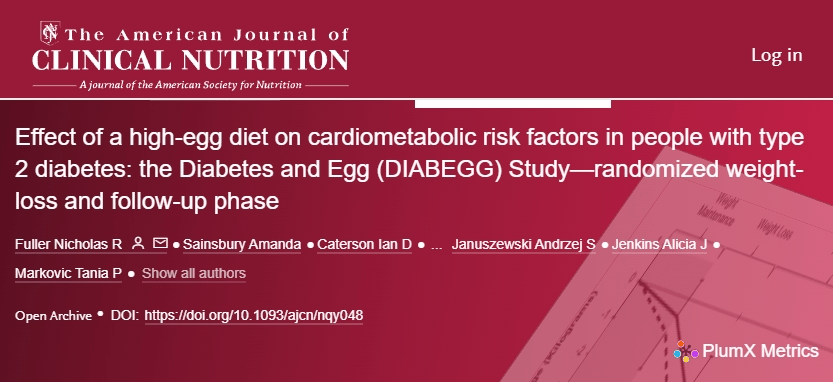This article is reprinted from 【CCTV Science and Education】;
People who love eating eggs usually consume 1-2 eggs per day, while some people either do not like eggs or are concerned that eating eggs will increase cholesterol levels. Who among these two groups has a health advantage? Will eating eggs raise cholesterol levels and lead to cardiovascular diseases?
Will eating 2 eggs daily cause health issues?
First, from the nutritional perspective of eggs, people who eat 2 eggs daily compared to those who eat eggs infrequently can obtain more protein from eggs, provided their overall dietary intake remains the same. This is beneficial for preventing muscle loss and boosting immunity. However, the primary concern is whether eating 2 eggs daily, which totals over 700 eggs in a year, will impact cardiovascular health.
Indeed, a study was conducted on this topic. In 2018, the “American Journal of Clinical Nutrition” published research regarding the cardiovascular health of “those who eat 2 eggs daily versus those who eat fewer than 2 eggs per week.” The study recruited 128 participants, all of whom were type 2 diabetes patients. Would consuming many eggs affect their health under such circumstances?
△ Study screenshot
Group 1 (Egg Lovers Group): Consuming ≥12 eggs per week
Group 2 (Egg Minimizers Group): Consuming <2 eggs per week
Phase One (3 months): All participants maintained their current weight and kept their egg consumption constant;
Phase Two (3 months): All participants began losing weight and controlling their weight while maintaining their egg consumption;
Phase Three (6 months): All participants continued their established egg consumption.
The final findings indicated that the weight loss of both groups was similar, and there were no significant differences in cardiovascular metabolic indicators (blood lipids, blood pressure, cholesterol, etc.). Additionally, there were no differences between the two groups regarding blood sugar levels, inflammatory markers, or oxidative stress markers.
Such results undoubtedly challenge established perceptions; consuming over 12 eggs weekly, totaling more than 600 eggs a year, did not lead to elevated cholesterol levels, and all cardiovascular indicators remained normal. Blood sugar and inflammatory markers were also within the normal range, and all participants were type 2 diabetes patients.
Therefore, this study also confirms that eating eggs daily does not adversely affect heart metabolic markers.


